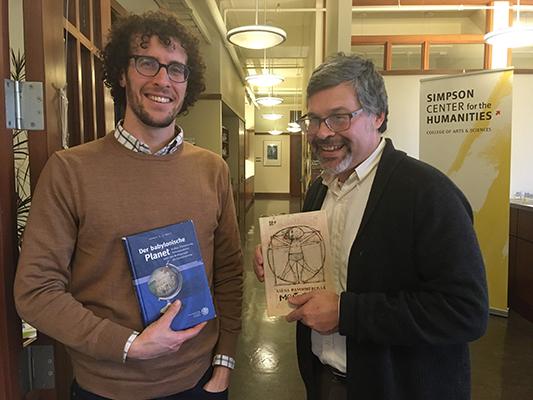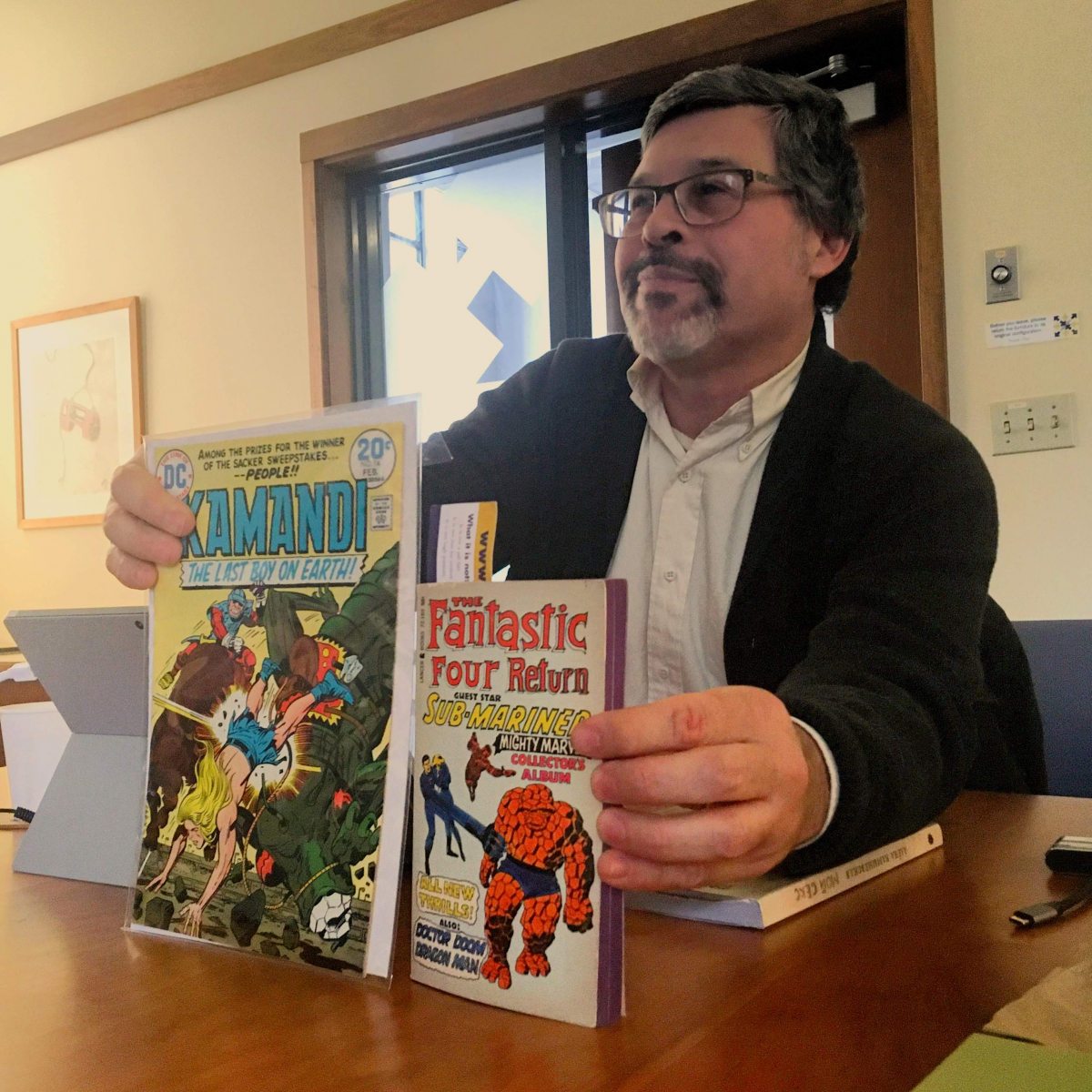
Alaniz introduced the term “weak translation,” a term he adopted from other fields, such as “weak theory” and “weak environmentalism,” for example. The latter has been used to refer to small-scale actions and ideas, low-intensity affects and social ties, and the precariety of subjects.
As part of its fall events featuring researchers, activists, and artists whose practices and work are connected to translation, the Translation Studies Hub hosted a two-part talk on Nov. 22, 2019. Profs. José Alaniz (Department of Slavic Languages and Literatures) and Jason Groves (Department of Germanics) gave presentations on translating Russian comics into English and the applicability of the term “weak” in the Translation Studies field, respectively.
Prof. Alaniz spoke about his experiences as a translator of Russian comics, and mainly about his current project: translating Lena Uzhinova’s 2014 graphic memoir My Sex. He described the book as the representation of Uzhinova’ sexual experience as she grew up as part of the last Soviet generation; a generation that had to deal with inadequate sexual education, child abuse, and rape culture.

After speaking about his other translation work (including being a consultant for an exhibit about Russian comics in the U.S.), the Department of Slavic Languages and Literatures professor also used some examples from Japanese manga, Conan the Barbarian, and Mandrake to talk about some of the visual challenges translating comics poses. Some of these challenges, he said, are usually related to how panels and vignettes are contextualized, how the composition of speech balloons is formatted, and the adaptation of speech balloons for a new audience. He is facing similar challenges while translating Uzhinova’s memoir.
In the second part of the talk, Prof. Groves spoke about some of his past translation past translation work in both the U.S. and Germany. including translating bureaucratic events, writing the captions for a punk film, and working on a map about immigration in Germany.
He used these experiences to introduce the term “weak translation,” a term he adopted from other fields, such as “weak theory” and “weak environmentalism,” for example. The latter has been used to refer to small-scale actions and ideas, low-intensity affects and social ties, and the precariety of subjects.
The Department of Germanics professor said that the word “weak” in the Humanities is originally derogatory, but recently it has been recovered to push back against its opposite: the affective value of “strong.”
In that sense, Prof. Groves says that “weak translation” is “non-normative, non-derogatory, evacuated of any ableist connotation. It marks the partial, the provisional, the leaky, in-promptu, the centrifugal, but it’s not ‘weak’ in the sense of deficient at all.”
To end his talk, Prof. Groves showed a few exercises he does in his undergraduate classes (including a translation of a poem in German using the voice assistant Cortana) to talk about the “weak” barriers of languages and what a “bad translation” would mean.
The Translation Studies Hub will be hosting their next event, a roundtable titled “The Lives and Labors of Professional Translators and Interpreters,” at the Simpson Center (CMU202) on January 17.
